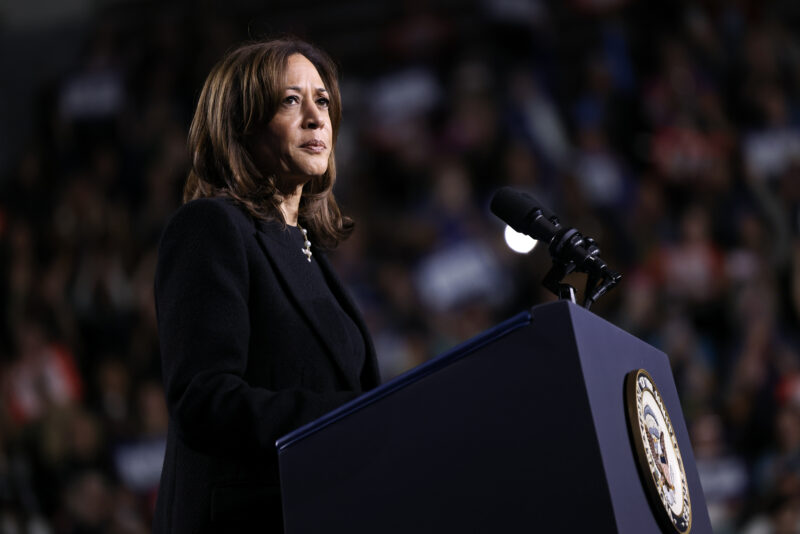U.S. strikes deterred Iran’s proxies but ‘deterrence is temporary,’ top general says
Gen. Kurilla also warned that Iran could have enough weapons-grade uranium for three bombs within ‘a matter of weeks’

Tom Williams/CQ-Roll Call, Inc via Getty Images
Army Gen. Michael Kurilla, commander, U.S. Central Command, testifies during the Senate Armed Services Committee hearing on the U.S. Central Command and U.S. Africa Command in Review of The Defense Authorization Request for Fiscal Year 2024 and The Future Years Defense Program, in Dirksen Building on Thursday, March 16, 2023.
Gen. Michael “Erik” Kurilla, the top U.S. general in the Middle East, said in congressional testimony on Thursday that the deterrence achieved by U.S. strikes on Iranian proxies in recent months is unlikely to last, suggesting that successful long-term efforts to counter Iran and its proxies take a whole-of-government approach.
“There is some, but not enough” cost on Iran for its activities, Kurilla told lawmakers at a Senate Armed Services Committee hearing on U.S. Central Command (CENTCOM), which leads operations in the Middle East. The recent U.S. strikes, he said, sent, “a very strong deterrent message, and we have not had an attack in 32 days in Iraq and Syria, but I will tell you that deterrence is temporary.”
Kurilla’s testimony echoed comments made by Dana Stroul, a former top civilian Pentagon official overseeing Middle East operations, in a webinar last month.
Kurilla said that Iran’s proxies had come close to killing U.S. troops on several other occasions prior to the deaths of three U.S. servicemembers at a post in Jordan earlier this year, which prompted the American strikes.
He told lawmakers repeatedly that efforts to deter and counter Iran and its proxies need to involve the whole government, not just the Department of Defense, as well as international cooperation to intercept Iran’s arms shipments to its proxies.
Addressing Iran’s nuclear threat, the CENTCOM commander said Iran hasn’t yet decided to pursue a nuclear weapon, but if it does, it could create enough weapons-grade uranium within “a matter of weeks” for three nuclear weapons.
It would take Iran longer to actually create those weapons, he added.
Kurilla said that efforts to intercept and seize Iranian “ghost fleet” tankers — which smuggle oil to purchasers primarily in China — have been primarily within the purview of the Department of Justice.
“If I was given that mission and the appropriate resources to accomplish it, I’m certain that we could accomplish the task given to us,” Kurilla said.
The senior military commander didn’t provide an assessment of how the Biden administration’s decision to withdraw Foreign Terrorist Organization designation of the Yemeni Houthis had impacted their activities. But he said the group’s redesignation under a separate Specially Designated Terrorist Group label has not appeared to change the militia group’s behavior.
Sen. Dan Sullivan (R-AK) urged Kurilla to order a strike on an alleged Iranian intelligence ship in the Red Sea, which is believed to be providing targeting information and guidance to the Houthis. The general said he would not be able to do so unilaterally, without explicit presidential authorization.
Kurilla painted an optimistic picture of the Middle East prior to the Oct. 7 attack as being on a path to never-before-seen Arab-Israeli relations. He said Iran had “exploited what they saw as a once-in-a-generation opportunity to reshape the Middle East to their advantage,” setting into action, over the past five months, all of the proxy groups it has seeded throughout the region for decades.
But he emphasized the continued importance of working toward regional military integration projects underway before Oct. 7.
He said that integrating regional air- and missile-defense systems remains a top priority for CENTCOM, and is currently working on radar-sharing agreements with regional partners that would allow a “common air picture” for identifying threats.
In Gaza, Kurilla described the primary humanitarian challenge as distributing and securing aid inside the enclave, particularly moving it into the northern portion of Gaza. He did not point to Israel as the major obstacle to humanitarian aid, as many Democratic lawmakers have.
The CENTCOM leader said that passing the pending aid package for Israel and other U.S. allies would be a key step toward supporting his operations in the Middle East.







































